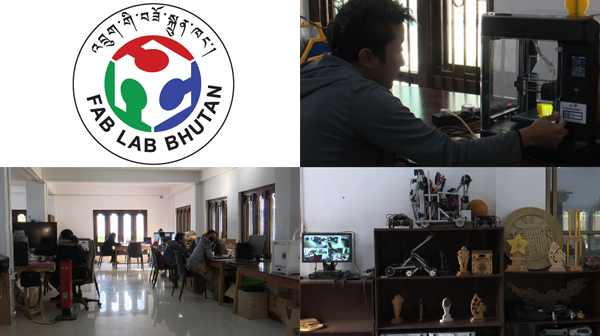 Due to the COVID-19 pandemic, the country is facing shortages of skilled labour and the rise in imports. However, the fabrication laboratory (FabLab) could be the solution to these problems. FabLab Bhutan is working towards skilling the workers to minimise skilled workers dependency.
Due to the COVID-19 pandemic, the country is facing shortages of skilled labour and the rise in imports. However, the fabrication laboratory (FabLab) could be the solution to these problems. FabLab Bhutan is working towards skilling the workers to minimise skilled workers dependency.
FabLab Bhutan is a network platform for creative minds who are willing to exchange knowledge, ideas and technology to collectively empower people to experiment and invent almost anything to solve real-world problems at local, national, and global levels.
“Our mission is to provide access to the 21st-century tools, knowledge and the global network of makers to educate, innovate and invent using open source technology and digital fabrication to allow anyone to make almost anything in Bhutan. FabLab is an excellent vehicle to transfer knowledge and distribute technology,” said Karma Lhakyi, from FabLab Bhutan
According to her, the prospect of enhancing FabLab in Bhutan has endless possibilities, not only can it produce products to improve the lives and livelihood of people but can also customise to give it a “Bhutanese” touch. More importantly, the Lab strives to make the best use of the plentiful raw materials in the country, thereby reducing the reliance on expensive imports. It is one step closer to making Bhutan self-reliant.
“We have CNC-Milling, Circuit Production, Laser, Precision Milling, and Vinyl Cutting. We also equip and tailor the students for the necessary skills required for the future, which I think Bhutan is in dire need of. We have trained more than 500 people on coding and programming through Pi-top,” she added.
Likewise, to address the skill shortages in the country, FabLab Bhutan in collaboration with the Ministry of Labour and Human Resources has introduced a Virtual Reality (VR) and Augmented Reality (AR) plumbing laboratory in two Technical Training Institutes of Chumey Technical Institute in Central Bhutan and Jigme Wangchuk Power Training Institute in Sarpang.
Yeshi Dorji










